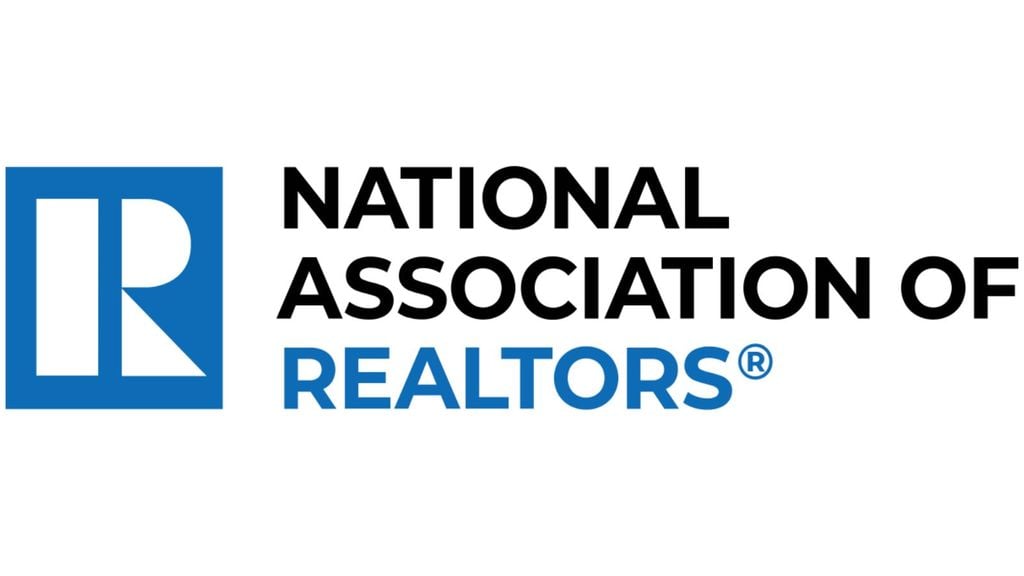In real estate, the terms “Realtor” and “real estate agent” are often used interchangeably. But as you’ll soon find out, they are not the same.
Knowing the differences between these two roles can help you make more informed decisions. Whether you’re a professional in the industry or a client looking to buy or sell property. This guide will clarify the distinctions, explain the benefits and requirements of each, and provide insights into why these differences matter.
The Differences Between a Realtor and a Real Estate Agent
While both Realtors and real estate agents are licensed professionals who help clients buy, sell, and rent properties, the key differences are in their qualifications, affiliations, and ethical standards.
| Real Estate Agent | Realtor | |
| Who They Are | A licensed professional who assists clients in buying, selling, and renting properties. | A licensed real estate agent who is an active member of the National Association of Realtors (NAR). |
| Responsibilities | – Assist clients in buying, selling, and renting properties. – Conduct market research. – Negotiate deals. |
– All responsibilities of a real estate agent. – Adhere to NAR’s Code of Ethics. – Access to NAR resources. |
| Education | – Complete state-mandated pre-licensing courses. – Pass the state licensing exam. – Fulfill continuing education requirements. |
– Complete state-mandated pre-licensing courses and pass the state licensing exam. – Join the NAR. – Complete additional NAR-specific courses and periodic ethics training. |
| Ethical Standards | – Must follow state regulations. – Maintain state license through continuing education. |
– Adhere to NAR’s Code of Ethics, which emphasizes honesty, integrity, and fair dealing. |
| Benefits | – Flexibility to work independently or with a brokerage. – Ability to operate in various real estate markets. |
– Enhanced credibility and trust due to adherence to ethical standards. – Access to NAR’s resources, market data, and networking opportunities. – Potential for higher professional development. |
What is a Realtor?
A Realtor is a licensed real estate professional who is a member of the National Association of Realtors (NAR), the largest trade association in the United States.
This membership distinguishes Realtors from other real estate agents due to their commitment to a strict Code of Ethics along with access to exclusive NAR resources.
How Did the NAR Get Started?
The National Association of Realtors was founded in 1908 with the goal of enhancing the professionalism and ethical standards within the real estate industry. Over the years, it has grown to include over 1.4 million members.
The NAR provides its members with extensive educational opportunities, advocacy on real estate issues, and various business tools to improve their practice.
What is the NAR Code of Ethics?
One of the most significant aspects of being a Realtor is adherence to the NAR Code of Ethics. Established in 1913, this code emphasizes the importance of honesty, integrity, and fair dealing in all professional interactions. Realtors are required to complete ethics training every three years to ensure they remain up-to-date with these standards.

Membership in the NAR enhances a Realtor’s credibility and provides them with access to a vast network of professionals, market data, and advanced training programs.
These resources enable Realtors to offer a higher level of service to their clients. It makes them a preferred choice for many buyers and sellers.
What is a Real Estate Agent?
A real estate agent is a licensed professional who assists clients in buying, selling, and renting properties. To become a real estate agent, you must complete your state’s pre-licensing courses and pass a state licensing exam.
The requirements for licensing vary by state. They generally include coursework on real estate principles, practices, and laws.
Real Estate Licensing Requirements
To obtain a real estate license, aspiring agents must:
- Complete Pre-Licensing Education: This involves taking courses approved by the state real estate commission. The number of required hours varies by state but typically ranges from 60 to 180 hours.
- Pass the State Licensing Exam: This exam tests knowledge of real estate laws, principles, and practices. Successful completion of the exam is required to receive a real estate license.
- Fulfill Continuing Education Requirements: To maintain their license, real estate agents must complete ongoing education as mandated by their state. This ensures they stay informed about industry changes and legal updates.
Roles and Responsibilities
Real estate agents perform various tasks including:
- Assisting Buyers and Sellers: Helping clients find properties that meet their needs and assisting sellers in marketing their properties.
- Conducting Market Research: Analyzing market trends to provide clients with accurate information on property values.
- Negotiating Deals: Facilitating negotiations between buyers and sellers to reach mutually agreeable terms.
- Managing Transactions: Overseeing the entire transaction process from initial offer to closing, ensuring all legal and financial requirements are met.
While real estate agents are fully capable of providing excellent service, they may choose to become Realtors to access additional resources and adhere to higher ethical standards.
This distinction can enhance their professional reputation and provide greater assurance to clients.
Why Should Real Estate Agents Consider Becoming Realtors?
Becoming a Realtor offers several advantages that can significantly enhance a real estate agent’s career. Here are some reasons why agents should consider joining the National Association of Realtors (NAR).
Enhanced Credibility and Trust
Realtors adhere to the NAR Code of Ethics, which sets high standards for professional conduct. This commitment to ethics enhances their credibility and trustworthiness in the eyes of clients.
The NAR Code of Ethics ensures that Realtors conduct their business with honesty and integrity, fostering a reputation of professionalism in the industry.
Access to Exclusive Resources
Realtors have access to a wide range of educational programs, certifications, and designations offered by the NAR. These resources help Realtors stay updated on industry trends and improve their skills.

Membership provides access to comprehensive market data and research tools that can give Realtors a competitive edge in the market.
Networking and Support
Being part of the NAR connects Realtors with a vast network of professionals, providing opportunities for mentorship, partnerships, and referrals.
The NAR advocates for policies that benefit the real estate industry and its professionals. Realtors benefit from this representation at the local, state, and national levels.
Business Tools and Technology
Realtors have access to various business tools and technologies that can streamline their operations and enhance their productivity. These tools include customer relationship management (CRM) systems, marketing platforms, and transaction management software.
NAR members receive discounts on various products and services, including insurance, travel, and office supplies, which can lead to significant savings.
By becoming a Realtor, real estate agents can leverage these benefits to grow their business, improve their professional standing, and better serve their clients.
How Much Does It Cost to Join the NAR?
The cost of joining the National Association of Realtors varies depending on several factors including local and state association dues.
Membership Fees
The annual membership fee for the NAR is $156. This fee provides access to all the benefits and resources offered by the national association.
In addition to national dues, Realtors must also pay state and local association fees. These fees vary by location but typically range from $100 to $300 annually for each level. For example, state dues in Arizona are $175, while local association dues in Phoenix are around $135.
Fees are prorated depending on the time of year you apply.
Additional Costs
Some local associations charge a one-time application fee, which can range from $25 to $500, depending on the association. Arizona’s current application fee is $25. Though some programs will allow this fee to be waived.
While the NAR offers many free educational resources, there may be costs associated with certain advanced courses, certifications, and designations.
Value for the Money
Despite the costs, the benefits of NAR membership often outweigh the expenses. The access to exclusive resources, educational opportunities, and a network of professionals provide a significant return on investment.
They enhance an agent’s skills, credibility, and business growth.
Additional Considerations for Real Estate Professionals
When deciding between becoming a real estate agent or a Realtor, there are several additional factors to consider that can impact your career and professional development.
Continuing Education
- Importance of Ongoing Learning: Both real estate agents and Realtors must engage in continuing education (CE) to stay current with industry trends, legal changes, and best practices. However, Realtors often have access to more comprehensive and specialized educational programs through the National Association of Realtors (NAR).
- Advanced Certifications: Realtors can earn various advanced designations and certifications, such as the Accredited Buyer’s Representative (ABR) and the Certified Residential Specialist (CRS), which can enhance their expertise and marketability.
Career Growth and Opportunities
- Networking and Mentorship: Realtors benefit from extensive networking opportunities within the NAR, which can lead to mentorship, partnerships, and career growth. This network provides a support system that can be invaluable, especially for those new to the industry.
- Market Influence: Being a member of the NAR can increase an agent’s influence in the market. The NAR’s advocacy efforts at the local, state, and national levels help shape policies that benefit real estate professionals and their clients.
Professional Reputation
- Building Trust: Realtors’ adherence to the NAR Code of Ethics builds a reputation for trustworthiness and professionalism, which can attract more clients and lead to long-term success.
- Client Perception: Clients often perceive Realtors as more credible and reliable due to their commitment to higher ethical standards and continuous professional development.
Realtor vs. Real Estate Agent: Which Path is Right for You?
Choosing between becoming a Realtor or remaining a real estate agent depends on your career goals and professional needs.
For those seeking to elevate their real estate careers and gain a competitive edge, becoming a Realtor offers numerous benefits that can make a substantial difference in your professional journey. Evaluate your goals, consider the long-term advantages, and decide if joining the NAR aligns with your aspirations.
Another consideration for real estate agents is whether you should become part a real estate team like SPACE. Get in touch with us today to learn more about the benefits of joining our team.




